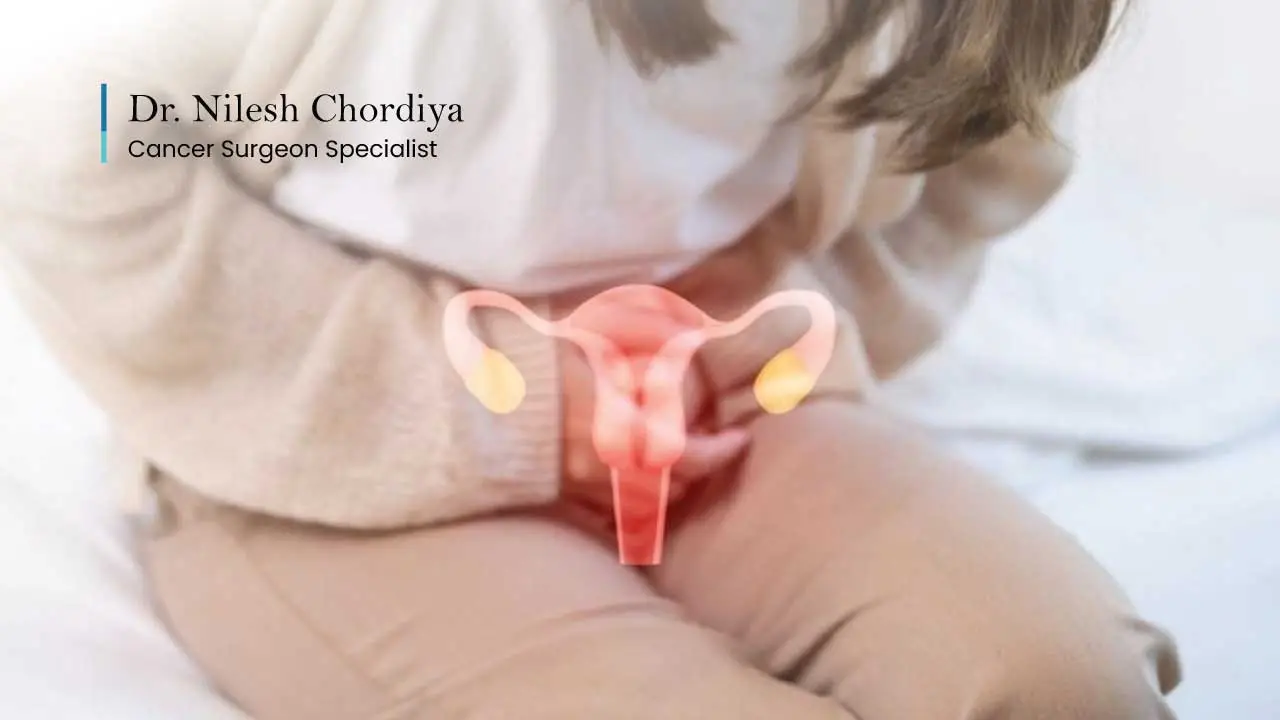Home > All Blogs > Role of Probiotics in Cervical Cancer Prevention
The Role of Probiotics in Cervical Cancer Prevention

Can Probiotics Help Prevent Cervical Cancer? Science Says Yes!
Cervical cancer is a serious health concern, impacting hundreds of thousands of women worldwide each year.
Most cases are linked to high-risk strains of the human papillomavirus (HPV), but recent research suggests that our microbiota may play a crucial role in shaping cervical health.
Did you know that a healthy balance of gut and vaginal bacteria can actually help prevent HPV infection and the abnormal cells that lead to cervical cancer?
Enter probiotics—a natural and promising approach to reducing cervical cancer risk. By improving the balance of good bacteria in your body, probiotics may strengthen your immune system, support cervical health, and even help maintain a protective environment against harmful pathogens like HPV. Intrigued? Let’s explore how this works!
Understanding Cervical Cancer and Its Risk Factors
Before we dig into probiotics, it’s important to grasp what cervical cancer is and why it develops. Cervical cancer starts in the cells of the cervix, the lower part of the uterus. If detected early, it’s highly treatable, which is why regular screenings (like Pap smears) are vital.
Common Risk Factors Include:
- HPV infection – Over 95% of cervical cancers are caused by high-risk HPV types.
- Weakened immune system – A compromised immune system makes it harder to fight off infections like HPV.
- Smoking – Tobacco harms cervical cells and your immunity.
- Poor microbiota health – An imbalance in vaginal bacteria can reduce protective mechanisms against HPV.
Emerging research shows how the health of your vaginal microbiome plays a big part in cervical health. A vaginal environment dominated by Lactobacillus bacteria has been linked to lower HPV persistence, while an imbalanced microbiome often creates a breeding ground for infections and inflammation.
Why Does This Matter?
This is where probiotics come in. By promoting a healthy microbiota, probiotics may help restore balance, strengthen immunity, and reduce cervical cancer’s risk factors.
Need help? Talk to Our Cancer Surgeon
Get the Most Effective Cancer Treatment in India by Consulting Dr. Nilesh Chordiya, One of the best Cancer surgeons in mumbai.
The Science Behind Probiotics in Cervical Cancer Prevention
How Probiotics Support Cervical Health
Probiotics are live microorganisms (good bacteria) that, when consumed in adequate amounts, offer health benefits. Here’s what they can do for your cervical health:
- Restore Balance in the Vaginal Microbiota
A healthy microbiome contains high levels of Lactobacillus bacteria. These good bacteria create a protective shield, making it harder for pathogens, including HPV, to thrive. - Produce Lactic Acid
Lactobacillus bacteria produce lactic acid, which helps maintain an acidic vaginal pH. An acidic environment can discourage the growth of harmful bacteria and even HPV. - Boost Immune Function
Probiotics can regulate your immune system, reducing inflammation and encouraging the body to repair damaged cells—two factors critical in stopping precancerous changes.
Specific Probiotic Strains That Help Prevent Cervical Cancer
Want to know which probiotics are the real superheroes? Here are some strains experts recommend:
- Lactobacillus rhamnosus GR-1
Known for improving vaginal health by boosting Lactobacillus dominance. - Lactobacillus reuteri RC-14
This strain produces antimicrobial substances that target harmful microbes. - Lactobacillus crispatus
Found naturally in a healthy vaginal microbiome, it has been shown to reduce HPV persistence.
Research backs these strains as key allies in restoring vaginal health, protecting against HPV, and reducing cervical cancer risk.
How to Use Probiotics for Cervical Cancer Prevention?
Best Sources of Probiotics
You might already be eating probiotics without knowing it! Here are some easy ways to incorporate them:
- Natural Foods
- Yogurt (with live cultures)
- Kefir
- Fermented foods like kimchi, sauerkraut, and miso
- Probiotic Supplements
Look for supplements containing the strains above and ensure the label lists a high CFU (colony-forming unit) count for effectiveness.
Optimal Dosage and Usage Guidelines
- Daily Intake: Aim for supplements with at least 10 billion CFU/day for measurable benefits.
- Oral vs. Vaginal Probiotics: Oral probiotics are great for gut and vaginal health, while vaginal formulations may be particularly effective in restoring local microbiota.
- When to Take: It’s often best to take probiotics with food for better absorption. Consistency matters—long-term use is ideal.
Who Should and Shouldn’t Take Probiotics?
Probiotics are generally safe, but there are exceptions:
- Safe for most healthy adults and pregnant women.
- Immunocompromised individuals should consult a doctor first.
- Side effects like mild bloating or discomfort are rare and temporary.
Always talk with your cervical cancer specialist before starting any new supplement!
Combining Probiotics with Other Cervical Cancer Prevention Strategies
Probiotics are powerful, but they work best alongside other preventive measures:
- Get the HPV Vaccine: Vaccination remains the most effective tool against HPV. Probiotics may even boost your immune response following vaccination.
- Healthy Diet & Nutrition: Focus on foods rich in antioxidants, vitamins, and probiotics (like leafy greens and fermented foods).
- Regular Cervical Screenings – Pap tests can detect abnormal cells early, before they become cancerous.
- Lifestyle Changes: Avoid smoking, limit alcohol, and make gut health a priority to reduce cancer risk.
Together, these strategies form a multi-layered defense against cervical cancer.
Real-Life Stories – Can Probiotics Actually Make a Difference?
Lata, a 29-year-old teacher, struggled with recurring HPV infections despite her best efforts. After her doctor recommended adding a specific probiotic supplement to her routine, her microbiota showed improvement, and the infection cleared after six months.
Doctors like Dr. Nilesh chordiya in Mumbai have also spoken about probiotics in their patients’ care plans, emphasizing their importance in maintaining vaginal microbiota balance.
These real-life examples demonstrate that, while probiotics aren’t a cure, they can be a game-changer for women at risk.
Future Research on Probiotics and Cervical Cancer
Scientists are actively studying probiotics to uncover even more benefits. Here’s what the future might hold:
- Development of new and tailored probiotic strains for HPV prevention.
- Clinical trials to solidify the relationship between probiotics and cervical cancer.
- Potentially making probiotics a routine part of gynecological care.
It’s an exciting area of research, and we’re only scratching the surface.
Frequently Asked Questions (FAQs)
- Can probiotics cure cervical cancer?
No, probiotics cannot cure cervical cancer. However, they can support prevention by boosting vaginal and immune health. - How long does it take for probiotics to improve vaginal health?
You may notice benefits within a few weeks, but long-term use (3-6 months) is often necessary for sustained results. - Are there any side effects of taking probiotics for cervical health?
Side effects like mild bloating or gas are rare and usually go away quickly. Consult your doctor if you experience any discomfort. - Can I take probiotics alongside HPV treatment?
Yes! Probiotics complement HPV treatments by improving microbiota health and immunity. Always talk with your healthcare provider first. - Which is better for preventing cervical cancer: oral or vaginal probiotics?
Both are effective, but vaginal probiotics may provide quicker local results. Combining both might maximize benefits.
Conclusion
Probiotics offer a natural, supportive way to help reduce the risk of cervical cancer by promoting a healthy microbiome, improving immune response, and creating a protective environment against HPV.
While not a replacement for standard preventive measures like vaccination and screenings, they’re a valuable tool in the fight for cervical health.
Want to get started? Talk to your doctor about adding probiotics to your routine, and explore our recommendations for high-quality probiotic supplements and lifestyle tips.
Start your cervical health journey today!
APPOINTMENT FORM

About Author
Related Blogs
Cervical Cancer vs. Uterine Cancer: What Is the Difference?
Cervical cancer starts in the cervix from HPV, while uterine cancer begins in the uterus lining due to hormonal imbalance.
Connection Between HPV and Cervical Cancer
HPV is the main cause of cervical cancer, but vaccines and regular screening can help prevent it before it turns serious.
How Long Can You Have Cancer Without Knowing?
You can have cancer for months or years without symptoms. Learn why early detection and routine check-ups are key to staying safe and healthy.


